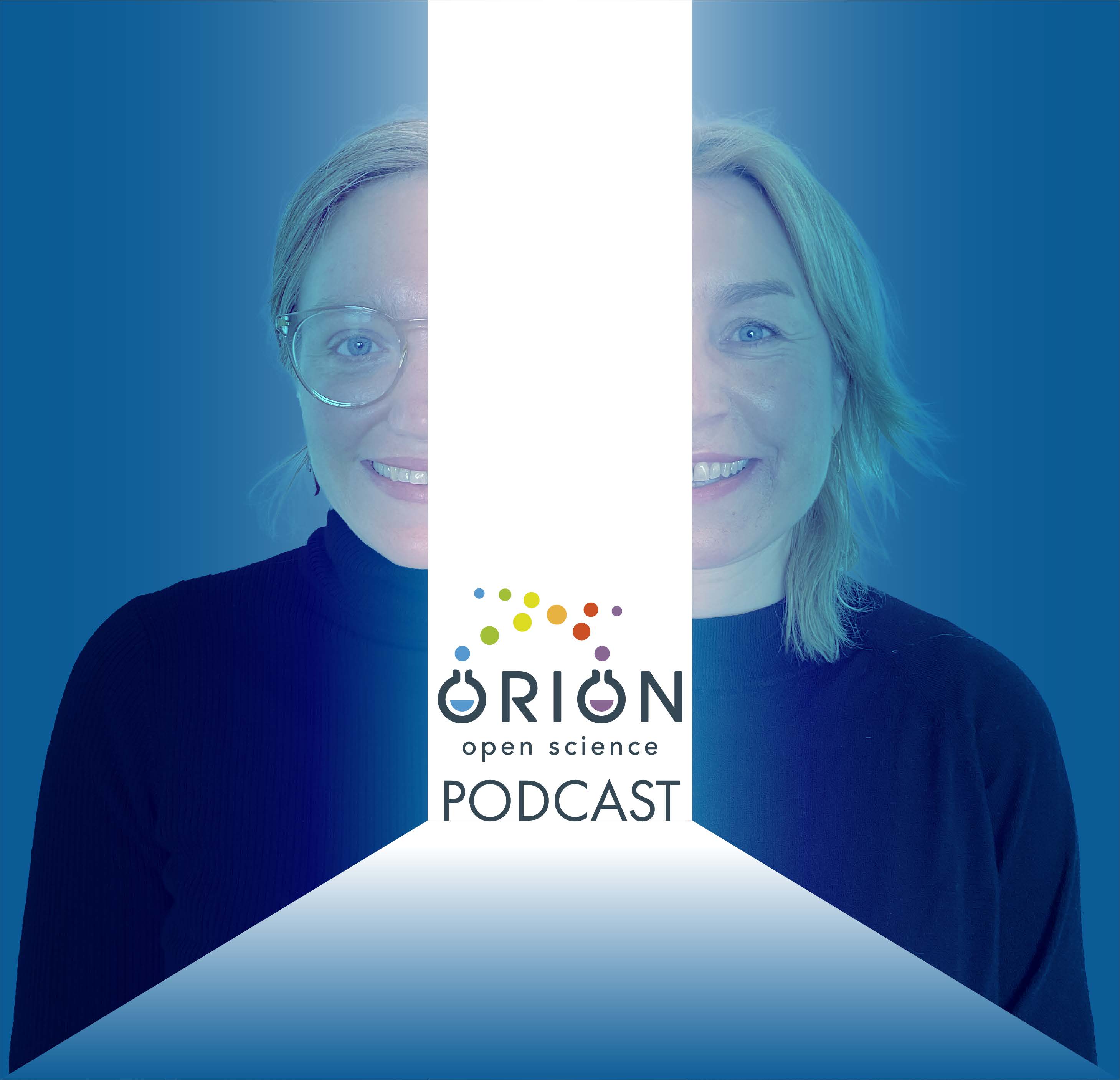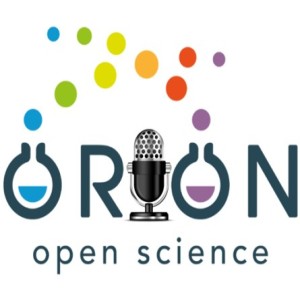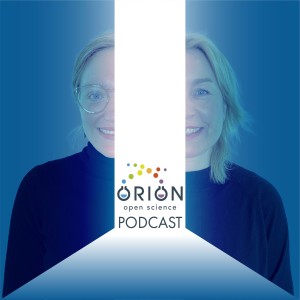
9.7K
Downloads
44
Episodes
From data sharing to citizen science and from peer review to professional development the podcasts will explore the good, the bad, and the ugly of the current scientific system, and what Open Science practices can do to improve the way we do science. Now on Season 2!
From data sharing to citizen science and from peer review to professional development the podcasts will explore the good, the bad, and the ugly of the current scientific system, and what Open Science practices can do to improve the way we do science. Now on Season 2!
Episodes

Thursday Jun 06, 2019
Thursday Jun 06, 2019
Episode Summary:
In this episode we are discussing the relationship between science and being funny. Science communication relies on grabbing attention, making science relatable and exciting, and humanising scientists, we talked to Marc Abrahams founder and emcee of the Ig Nobel Prize and editor of Annals of Improbable Research about the role humour plays in this.
Resources and Links:
Episode Quotes:
‘If you spend five seconds really looking at it, there’s something funny about it, and that’s what makes it interesting, and once you're interested, if only for five seconds, now you’re paying attention’
‘All of us were looking at each other and thinking: at any moment now some ‘grown up’ person is going to stop us’

Thursday May 23, 2019
Signing up to Open Science: Open Peer Review and Aligning Core Values
Thursday May 23, 2019
Thursday May 23, 2019
Episode Summary:
In this episode we are talking to Dr Guillaume Filion from the Center for Genomic Regulation (CRG), Barcelona about his decision to put his name on all his peer reviews, why he feels this makes him more accountable, and what choices researchers need to make about whether their values align with those who they will work with.
Resources and Links:
- Factsheets
- Dr Guillaume Filion
- Original Blog Post by Dr Guillaume Filion
- FOSTER+ Information on Open Peer Review
Episode Quotes:
“I had the feeling I would do a better job as a reviewer, if I put my name on it, if I put my name on the line then it would force me not to do a bad job”

Thursday May 09, 2019
Open Data: FAIR, foul, and meta
Thursday May 09, 2019
Thursday May 09, 2019
Episode Summary:
In this episode we are discussing what metadata is, the obstacles to sharing research data, and how Open Science recommendations are being transformed into actions. Our interview guest will be Professor Eva Mendez from Universidad Carlos III in Madrid who is the Chair of the European Open Science Policy Platform.
Links:
Factsheets (Open Data and Data Management)
Quotes:
'Open doesn't necessarily mean FAIR'

Thursday Apr 25, 2019
Retraction Watch, Research Integrity, and Peer Review
Thursday Apr 25, 2019
Thursday Apr 25, 2019
Episode Summary:
In this episode we are discussing a range of topics relating to the good and bad of research practices with our interview guest Ivan Oransky the co-founder of Retraction Watch. We will discuss the issue of paper retractions, and their wider implications for research integrity, peer review, and science journalism.
Links:
Research Integrity Information
Article on Issues in Peer Review
Quotes:
'I don't think it is great to cover single studies every week'

Thursday Apr 11, 2019
Aubrey De Grey, Aging, and Alternative Approaches to Research
Thursday Apr 11, 2019
Thursday Apr 11, 2019
Episode Summary:
In this episode we interview Dr Aubrey De Grey, founder of the SENS Research Foundation which aims to develop a cure for aging! De Gray works outside mainstream science and we talked to him about his controversial theories, views on citizen science, and rewarding radical ideas in science.
Links:
Would You Want to Live Forever? Video on Emilia Tikka's Speculative Art Piece (Turn on subtitles)
Quotes:
"It took us 10 years to get our 1st publication”
"I'm not planning to die"

Thursday Mar 28, 2019
Communicating Animal Research Part 2
Thursday Mar 28, 2019
Thursday Mar 28, 2019
Episode Summary:
In Part 2 of the episode on communicating animal research we bring you excerpts from an EARA event at the MDC at which scientists and science communicators discussed their views on how and why animal research should be communicated more openly.
Links:
Full talks: Improving openness in animal research in Germany – watch the videos
Quotes:
'Only if scientists openly discuss animal research we can reach our goal: a consensus that the majority of society can support. We need to defend the middle ground'

Thursday Mar 21, 2019
Communicating Animal Research Part 1
Thursday Mar 21, 2019
Thursday Mar 21, 2019
Episode Summary:
In this episode we are discussing the issues connected to communicating animal research. Open Science is based on making science more transparent and accessible, but what does that mean for those who do more controversial research? We will cover what fears scientists might have, and the arguments for and against animal research that scientists often hear. In Part 1, Luiza gives her perspective as a former lab scientist and Emma talks about her ideological change from animal rights activist to science communicator.
Links:
Quotes:
'If one scientist feels they can talk about this a bit more then that's good, right?'

Thursday Mar 14, 2019
Preprints: what do scientists think?
Thursday Mar 14, 2019
Thursday Mar 14, 2019
Episode Summary:
In this episode we are discussing preprints and how they fit into Open Access publishing. Our interview guests will be Dr Manvendra Singh, a post-doc, and Elias Lowenstein, a PhD researcher, both from the Max Delbrück Center for Molecular Medicine in the Helmholtz Association (MDC). We will cover what pre-prints are, what possible benefits they bring, and how they can help promote open access more widely.
Resources and Links:
Episode Quotes:
“With preprints it is a copyright you have, to the world: you gave this information first”

Friday Mar 08, 2019
Rewriting Diversity: Editing Wikipedia and Opening Science
Friday Mar 08, 2019
Friday Mar 08, 2019
Episode Summary:
The podcast this episode will report directly from an ‘Edit-a-thon’ that aims to celebrate International Women’s Day 2019 by improving diversity on Wikipedia pages. The podcast will investigate what the challenges to diversity in science are and how the Open Science movement can help.
Organising Institutions:
Max Delbrück Center for Molecular Medicine (MDC), Berlin Institute of Health (BIH), Charité Universitätsmedizin Berlin, and Leibniz Forschungsinstitut für Molekulare Pharmakologie (FMP)
Interviewees:
Steph (Attendee and Science Communicator)
Links:
How to Edit a Wikipedia Page - BBC Article
Inferior, Angela Saini (The book that inspired Jess Wade)
Reimagining Open Science Through a Feminist Lens
Quotes:
'We have so many women doing incredible work so we just wanted to make them visible'
'Men's work is more likely to accepted and more likely to be cited'
'One of the things that excites me about Wikipedia is that it is a great gateway for people who might never have clicked on a journal article'
'Anything you can do in your pyjamas is a good thing'

Thursday Feb 28, 2019
Is science self-correcting?
Thursday Feb 28, 2019
Thursday Feb 28, 2019
Episode Summary:
In this episode we are discussing whether science is broken or whether it is self-correcting, and whether the Open Science movement is evidence that science does in fact self-correct. Our interview guest will be Daniel Engber who is a science journalist from Slate magazine. We will cover problems and challenges in the practice of science, what can be done to improve the situation, and how Open Science principles are helping to change things.
Resources and Links:
- Factsheets
- Engber Articles
- Discover Magazine article: Is Science Broken, Or Is It Self-Correcting?
- Pressure for Novelty article
Episode Quotes:
“Science is only self-correcting if people take the trouble to correct it”
